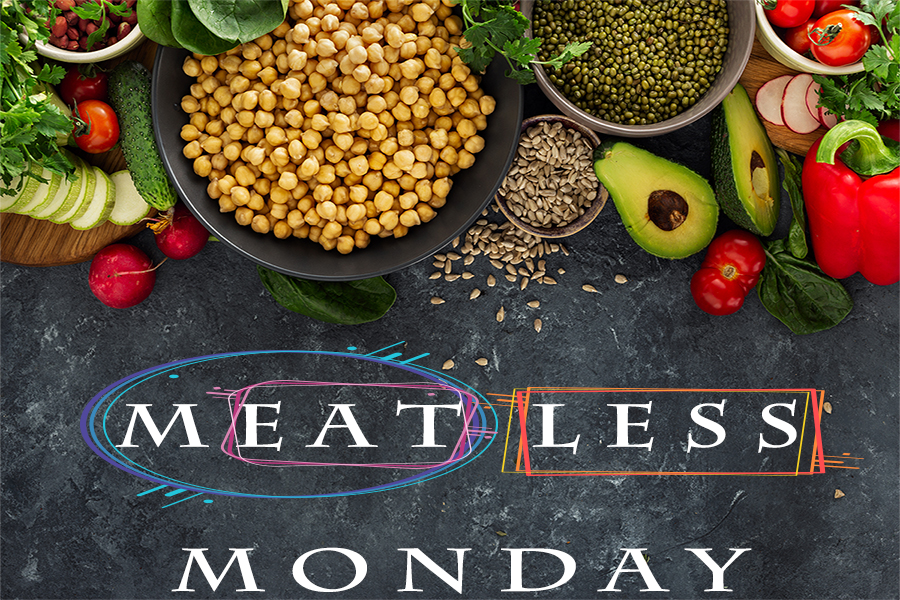Most Americans eat 1 ½ times the recommended dietary allowance each day. Excess red and processed meat consumption is linked with various chronic diseases, including heart disease, type 2 diabetes, obesity and cancer. One study showed that the consumption of processed meats is associated with 42 percent higher incidence of coronary heart disease and 19 percent higher risk of diabetes.
Meatless Monday was first introduced during World War I to reduce meat consumption to help the war effort, and it was revived in 2003 as a non-profit public health initiative. Meatless Monday’s simple message to “skip meat once a week” works because it provides a regular cue to act on Monday, which research shows is the day people are most open to making positive changes. Starting each week practicing Meatless Monday can lead people to eat more fruits, vegetables and plant-based meals throughout the rest of the week.
If you reduce your meat consumption and add more plant-based foods, there are many health and other surprising benefits. Substituting more plant-based foods for meat is more likely to result in healthier body weight.
Cutting down on at least one half serving of red meat every day can decrease the risk of developing diabetes by nearly 15 percent. It can also help protect your kidneys.
Meals that are rich in fruits, vegetables, nuts and legumes contain natural antioxidants that benefit cardio-health. Those who regularly consume chickpeas and/or hummus may help prevent or offset their development and progression of several chronic diseases (cardiovascular disease, type-2 diabetes) and promote healthier weight. Eating legumes 3-4 times/week could lower your risk of heart disease by as much as 10 percent. Nuts are a rich source of protein and may help improve concentration.
If you are concerned about your protein, beans are an incredible food. They are nutritious, sustainable, and inexpensive, making them one of the most cost-effective sources of protein available on the planet. But what makes the bean a truly remarkable ingredient is its versatility: in taste, preparation, and variety. With these amazing properties, it’s no surprise that beans continue to be the cornerstone of many great global cuisines.
One surprising benefit of going meatless is the positive effect it has on the environment, lessening climate change.
Reducing consumption of meat can help reduce the production of greenhouse gases that impact climate change. It can also help lessen the demand for precious environmental resources such as land, water, and energy.
Livestock production creates more greenhouse gases than the entire transportation sector – all the cars, trucks, planes, and trains in the world
Livestock production uses 75% of the earth’s agricultural land
Producing ONE quarter-pound beef burger uses 425 gallons of water – enough water to fill 10 bathtubs
Producing ONE quarter-pound beef burger uses up enough energy to power an iPhone for 6 months
Skipping one serving of beef every Monday for a year saves the equivalent emissions to driving 348 miles in a car.
Use this calculator to see how replacing meat with plant-based food will affect the planet.

